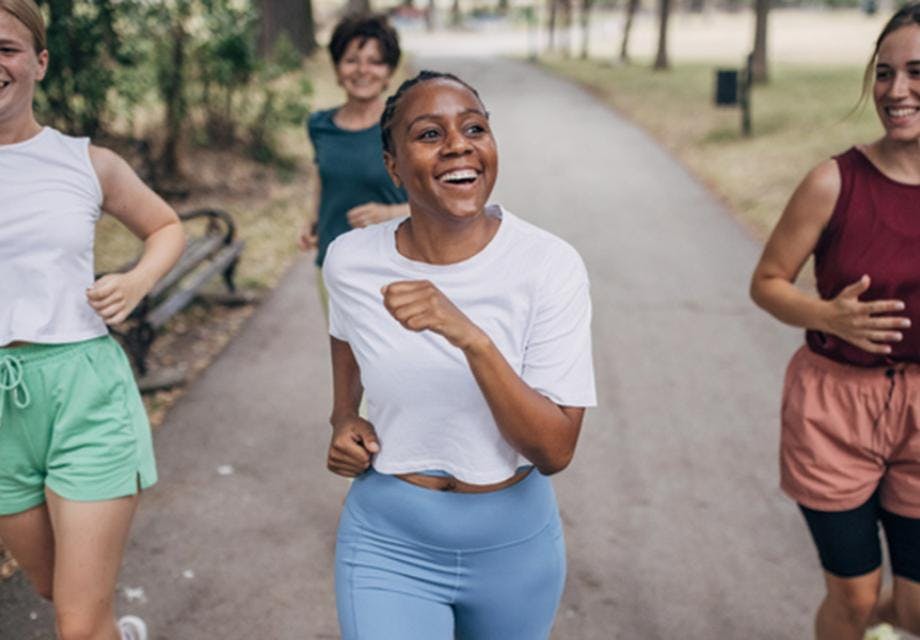Exercise and HIV: all you need to know
Hester Phillips
13 April 2023
Exercise is good for everyone’s health, and this is especially true if you have HIV. Here’s what you need to know to get active
We can all find it hard to find the motivation to start exercising. But if you have HIV you may have particular worries, questions and challenges. Well this blog is here to help you find out everything you need to know about exercise and HIV. So relax and read on – then get active!
Is it okay to exercise if I have HIV?
Yes! In fact, it’s really important to look after your health if you have HIV. And keeping fit is a big part of this.
If you have HIV you might hear people say you shouldn’t exercise because it will tire you out. But that’s wrong. In fact, being physically active is so important for your body if you have HIV. It can also help improve your mental health too – helping you feel happier and less stressed.
What if I can’t exercise?
There are lots of reasons why you might find it hard to exercise. And it’s true, challenges do exist. Let’s take a look at some of the most common challenges and solutions for them.
Money
You might feel like exercise is an expense you can’t afford But lots of exercise is free and needs no special kit. Going for a walk or run won’t cost you anything. And neither will doing things like playing football or skipping, as long as you’ve got a ball or some rope.
There are other ways to keep active, like doing chores or walking to pick up groceries, water or other things your household might need.
No sports facilities or clubs
If you don’t have sports facilities, gyms or clubs nearby don’t let it stop you. All you need to go for a walk is the outside world. And if you have some open space nearby you could ask friends to join you for a run or a game of your choice. You could even start your own team or club.
Time
Lots of people feel like they don’t have time to exercise. If you go to work or school (or somewhere else) most days you can build exercise into your day by walking, running or cycling to where you are going. Then you don’t need any extra time for it.
You could also try swapping what you normally do in your leisure time to something that involves exercise. Instead of scrolling through your phone, socialising or watching television why not go for a walk with some friends or make up a dance routine? Both are great ways to relieve stress.
Motivation
We can all feel like we haven’t got the energy to exercise. But there are things you can do to get motivated. Exercising with friends, family or your partner can make you stick to it, even when you don’t feel like it. Joining a team can also make you feel more committed to showing up, and you might make some new friends too.
If you don’t feel motivated because you feel unfit or bad at sports don’t worry! Just pick something you like the sound of and give it a try. The more you do it, the better you’ll get.
What else can I do to stay healthy?
Take your HIV treatment every day. Eat well and sleep well.
It’s also really important to talk to someone if you are feeling down or worried. Remember, looking after your mental health is as important as your physical health.
If you want to know more about living well with HIV, check out our health and wellbeing section.
Get our news and blogs by email
Keep up-to-date with all our latest news stories and blogs by signing up to the Be in the KNOW news digest.
